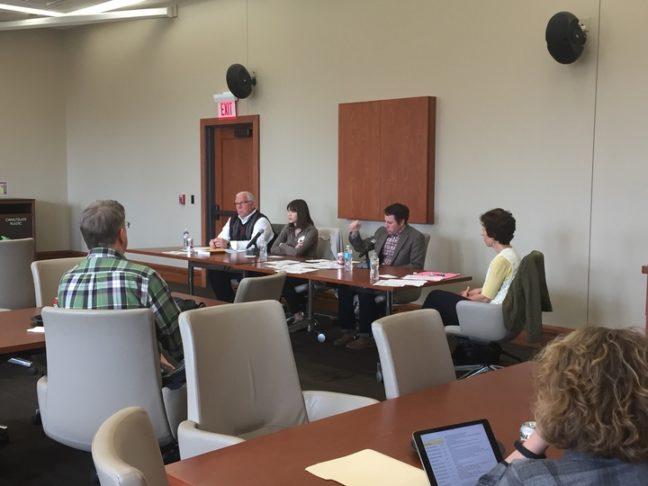Relevant research often goes unused when crafting legislation, but an expert panel Monday offered advice on how that can change.
Hosted by Scholars Strategy Network, three panelists discussed ways to implement educational research into policy and how scholars can appeal to their legislators.
There are many books, such as Handbook of Research in Education Finance and Policy, that delve into educational policy research, but legislators often don’t have time go through extensive research, Sen. Luther Olson, R-Ripon, said.
Associate Director of Public Policy at Scholars Strategy Network Hannah Reuter said the aim of the Network and education researchers is to “expand their reach” and make scholarly research available to the public.
Communication experts, who work with scholars to “help synthesize their ideas” into timely and “jargon-free” messages the public can understand easily help accomplish this. These efforts should be focused toward local news, Reuter said. This way, legislators have a better idea of what their constituents are thinking.
The other way to increase communication is to get policy makers and scholars in the same room, Reuter said.
“[The Network] finds that face-to-face contact is the most meaningful and most important,” Reuter said. “We find that building relationships with legislators is what makes them get back to you in the future.”
Director of LaFollette School of Public Affairs Donald Moynihan said scholars often do a poor job marketing their research to legislators. Scholars should make their research brief and accessible while offering a framework for potential policy, so legislators won’t have to go through extensive research to inform their policy.
Reuter said experts shouldn’t be the only ones lobbying for research in education policy. Lobbyists can also advocate to legislators for certain policies.
There is power in affiliation with a large group, she said, and legislators want to hear their concerns and be closer to their constituencies.
“The greatest strength of scholars providing this information versus think-tanks or other advocacy groups is that … there’s a certain amount of prestige and partiality … to the information you can provide being a university-based scholar,” Reuter said. “Often, [researchers’] findings are incredibly generalizable in ways that scholars are unaware.”


